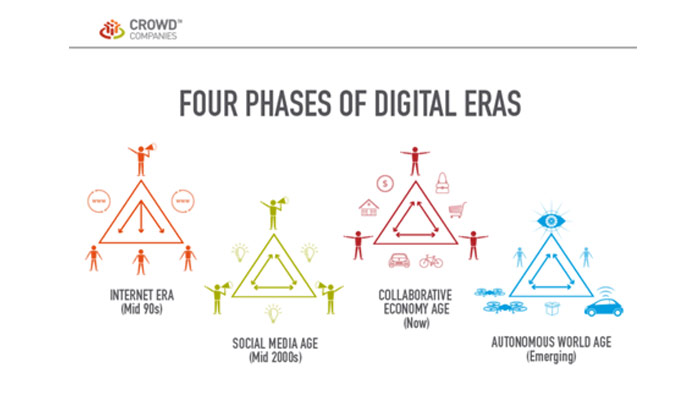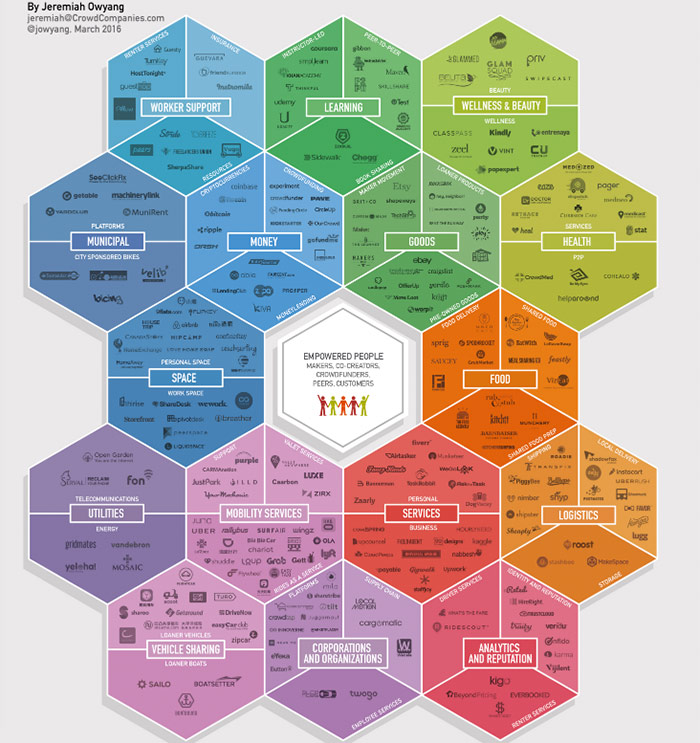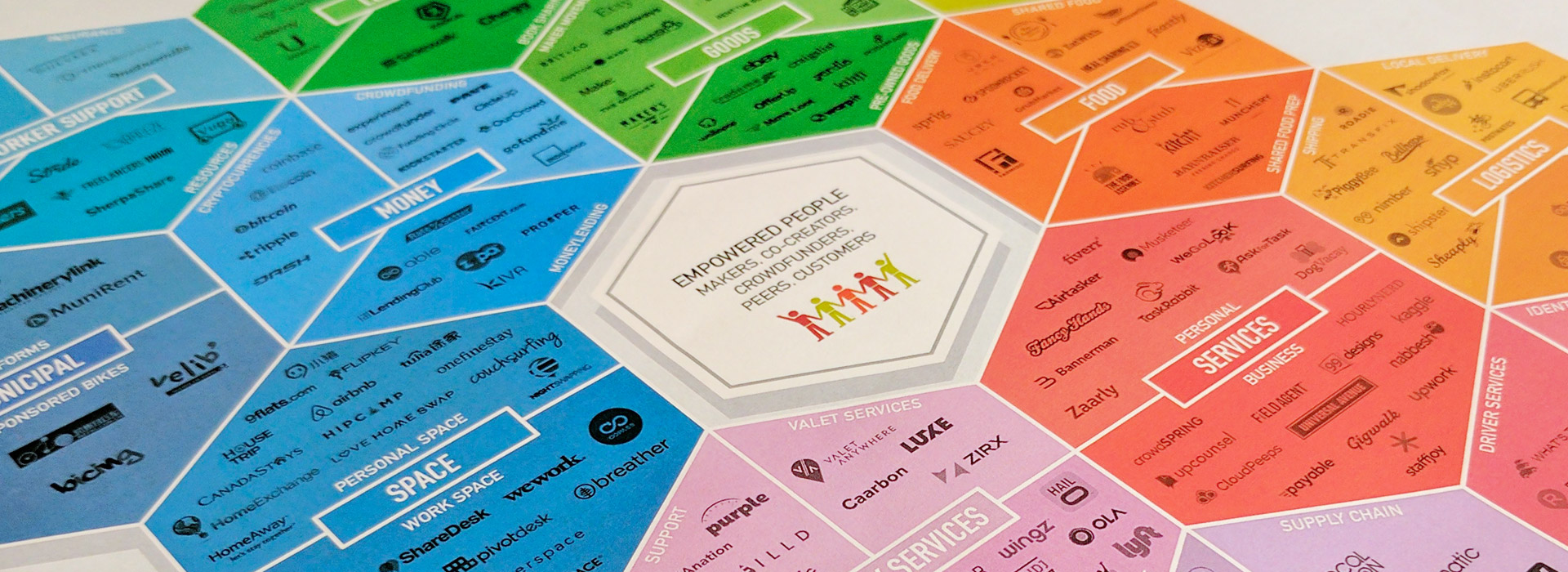The collaborative age
Earlier this month, Air New Zealand invited their Airpoint Business members, to come and have lunch and listen to Jeremiah Owyang, Founder of Crowd Companies. His talk is part of a series called “The conversation” in which speakers talk about world-class business success, what it takes and how to achieve it.
Disruptive digital eras
Crowd Companies is an innovation council that helps brands overcome challenges and navigate the next wave of disruption and opportunity. So what are these disruptive waves he is talking about?
Over prior decades we have moved through the internet age, disrupting through new technology, to the social media age, disrupting through easy access social platforms and peer-to-peer media, to the collaborative economy we are in right now. The collaborative economy is an economic model where commonly available technologies enable people to get what they need from each other.
Today people get what they need from each other, through peer-to-peer commerce. We rent, hire, lend and care less and less about ownership. But let’s be clear this is not driven by altruistic reasons, it is commerce, it is money. Big Money. PwC projects the collaborative economy will reach $335 billion in revenue by 2025, which Jeremiah believes is a very conservative estimate.
The forth and upcoming phase is the Autonomous world age, where intelligent systems operate without human participation enabling new business models and a more efficient society. We already see these developments in the car industry moving fast into the autonomous technology. Keep your eyes and ears open because these developments will spread into all sorts of industries in the next 5 years!

Get collaborative
Jeremiah’s talk however was mainly focussed on the current collaborative age and how companies can use this way of doing business to their advantage. Even though the name might hint to a more social economy, the reality is that it is a form of continued capitalism. Integrating ways to share products can be much more lucrative then a one off sale.
It all started with Financial Crisis 2008. People were looking at ways to get more income and they were tired and distrusting of the establishment. Combine that with the rise of the smart phone, urbanisation with people moving back into cities and more social awareness and you have a billion dollar economy in the making. An economy that is led by companies like Airbnb and Uber. And as we know, this is upsetting a lot of companies at the moment. Not only is the peer-to-peer commerce spreading throughout all sectors in society it is also one of the most (crowd) funded areas receiving billions of dollars to start up new businesses.
The Collaborative economic honeycomb below is a great overview of different industries and companies operating within them.

So what does this mean to companies that are currently not addressing this collaborative model? People will not stop consuming products but the way they do it will, so consider the following.
Reputation is everything
People are interested in how other people rate you and your product. Peoples voice (rating) is more important than ever, and social media underpins this. It is likely this rating of products will become only more important as we move to a more digitized world and internet of things.
Foster loyalty
Loyalty from your users, or employees, will become one of your main assets. And crowd funding or equity sharing is one of the strongest methods around. Once people literally invest in you they will become your loyal following and advocates. Keep treating them accordingly and you will have ongoing support.
Rethink ownership
Ownership will be less and less important to the consumer. People are driven by convenience and value with easy access. Look into ways of enabling the peer-to-peer and on-demand culture with your product. Big companies like BMW are already tapping into this. BMW is currently running a profitable service called “BMW Drive Now” in Germany. You can join their program and borrow the latest models for a couple of hours. The way BMW explains it: Instead of selling a 1000 BMW’s once, we want to sell 1 BMW a 1000 times.
The Future is here
As we move into the autonomous age our world will radically change. With autonomous systems in place our cities will be more efficient and we will commute, consume and work differently. This will open up a vast world of opportunities and challenges. We need to move and think faster about how we adapt to this new upcoming age. Not only does it have practical implication, like how we work as certain elements are being replaced, but it will also have huge social and economic impacts. This requires not only product innovation but also innovation in your business models and the customer experience.
The talk was filled with many different ideas of future scenarios in all sorts of sectors. And as things are with future predictions we were left with many unanswered questions. It is hard to say whether Jeremiah is an optimist, pessimist or realist. For now I settle on him being an outstanding observer and future thinker.
Feel like learning more about the collaborative (or sharing market) go to the Reinvent YouTube channel.
Exploring the Honeycomb of the Collaborative Economy (Jeremiah Owyang Interview)
Want to read more on creativity, design, product development and innovation? Go to our Six Lenses Blog.


Comments